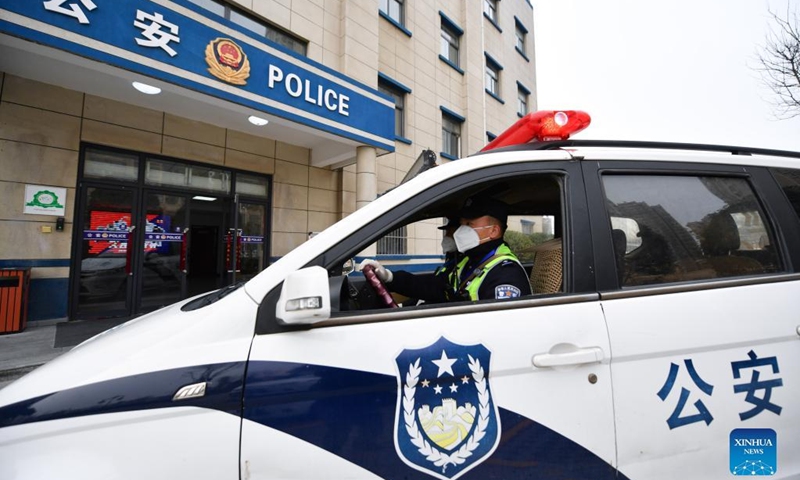
Photo: Xinhua
The government of East China's Jiangsu Province announced Thursday it has decided to establish an investigation team to thoroughly probe the case in which a woman in Fengxian county was suspected to have given birth to eight children, amid public calls for a credible investigation of the case which first went viral after the woman was found chained in a rural house.
The Jiangsu investigation team will strive to unearth the truth, severely punish illegal acts in accordance with the law, hold anyone responsible accountable, and publish the results in a timely manner, the mission announced, according to the Xinhua News Agency.
The case was first revealed to the public in a video that went viral on social media. The video shows the woman locked up in a hut in the suburbs of Fengxian county wearing thin clothes in freezing weather. Netizens suspected the woman was trafficked to the county, since she has a different dialect, and demanded help for her and an investigation into the case.
Since the case first went viral, the Fengxian county and the higher Xuzhou city governments have released four statements in response to those questions. However, some netizens claimed they found the statements contradictory, and demanded more information on the woman's marital status, why she was chained, and why she reportedly gave birth to eight children despite family planning policies.
Fengxian county released a brief report on January 28, saying the woman surnamed Yang was married to villager Dong and was chained by her family due to her unstable mental status. No human trafficking was involved, it said.
Many netizens were unconvinced by the vague report and demanded more details. On January 30, the county government said Yang was roaming and begging when she was brought home by Dong's father. The marriage registration staff did not verify Yang's identity but no evidence of human trafficking was found.
After some netizens claimed they had heard about similar stories of buying abducted women as wives in Xuzhou, the Xuzhou government on February 7 said Yang was from a remote village in Southwest China's Yunnan Province. She was brought to Jiangsu Province by a woman surnamed Sang to treat mental disease, and she went lost but Sang did not report the situation to her family in Yunnan or the police, the statement from Xuzhou government said.
Netizens urged further details on the identity of Sang, suspecting she to be a trafficker.
The fourth report, released by the Xuzhou government on February 10, confirmed Yang's identity by DNA verification with her sister in Yunnan. It said that Dong, Sang and Sang's husband were suspected of human trafficking and were arrested. Subsistence allowances were given to Yang's family and her children will be given assistance to go to school. Village officials and several volunteers have come together to help the family, according to the latest release of Xuzhou government.
The Thursday decision of a provincial-level investigation soon topped the hot search lists on Sina Weibo, with many welcoming the intervention by the provincial authorities in order to get truth of the case.
Zhu Lijia, a professor of public management at the Chinese Academy of Governance, told the Global Times on Thursday that in addition to legal punishment for those responsible for Yang's case, the provincial probe team will also inspect problems in local governance and make sure Yang's case won't be common.
The case will also teach a lesson to grassroots-level governments to cherish their credibility and be transparent, as the public can understand that investigating what happened two decades ago may take some time, but they won't be satisfied with ambiguous statements, observers said.

